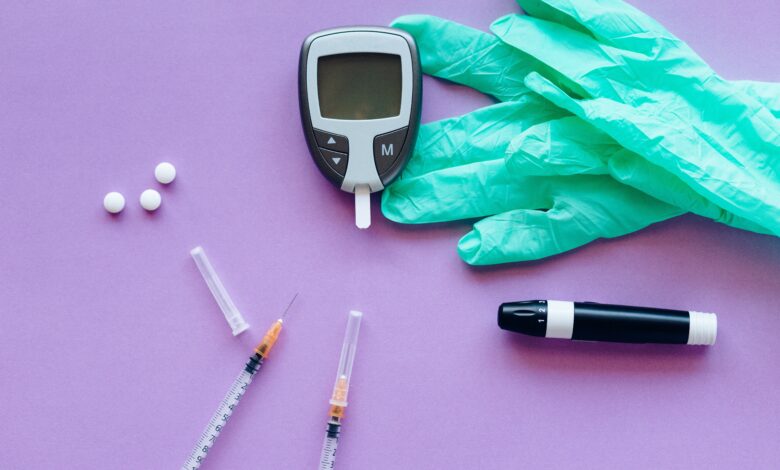
In the case of type 1 diabetes, certain treatments and complementary approaches make it possible to treat the disease effectively.
Check out the full list below.
Type 1 diabetes: medical treatments
Diabetics can hope to lead an active, independent and dynamic life provided they respect, throughout their lives, strict discipline by:
- monitoring blood glucose levels using a blood glucose meter;
- an appropriate diet;
- a physical exercise program.
In our Diabetes fact sheet (overview), you will find:
- a diagram of glucose uptake;
- a table of blood glucose values for adolescents and adults with diabetes;
- a diet plan;
- physical exercise suggestions;
- ways to better manage stress.
People with type 1 diabetes often need to be treated for health problems that may be associated with this disease.
Medication
People with type 1 diabetes must inject insulin to compensate for the insufficiency of the pancreas to produce it. Injecting rather than taking insulin by mouth is necessary because it is destroyed by digestive juices. As the treatments are daily (often several times a day), the patient must learn to administer the injections himself.
The dosage and the type of insulin used vary according to the actual insulin needs of the subject, at each moment of the day. Hence the need for close medical monitoring. At the start of treatment, it may take some time to find the right dosage.
There are different types of insulin, with different speeds of action. The majority of patients practice 3 to 5 injections per day, or use an “insulin pump”, a small device installed on the body and designed to provide a continuous infusion of insulin 24 hours a day. The goal is to ensure, at all times, that blood sugar levels are as close to normal as possible.
In this way, the incidence and severity of complications associated with type 1 diabetes are significantly reduced. Long-acting insulins, which require a single injection per day, are also available. The choice of insulin type should be made with the attending physician.
Surgery
In recent years, researchers have been increasingly interested in the therapeutic benefits of pancreas or islets of Langerhans transplantation in type 1 diabetics.
Because of the risks, pancreas transplantation is reserved for cases where diabetes cannot be controlled by insulin injections or in case of serious complications.
Less expensive and less risky, the transplantation of islets of Langerhans is still at the experimental stage.
Type 1 diabetes: complementary approaches
Certain natural products can help prevent complications associated with type 1 diabetes.
See our Diabetes Complications fact sheet.




